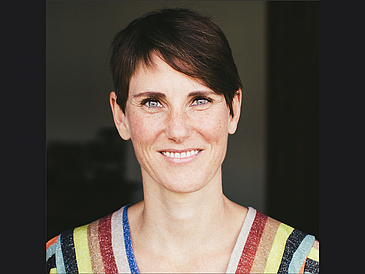Prior to that, she worked as a research professor for political and data science at the University of Mannheim. Starting in 2012, she set up the German Internet Panel (GIP), the first online panel study based on a random sample of the general population, which she led for ten years. Between March and July 2020, she conducted a Germany-wide coronavirus study at the GIP. The results of the data, collected and reported daily during the ten-week-long study period, provided the crisis cabinet, BMAS, and BMI with timely information on the social impact of the first coronavirus wave and the first coronavirus lockdown in Germany.
Annelies Blom studied social sciences at University College Utrecht and European politics and society at the University of Oxford. After graduating, she worked for several years at the National Centre for Social Research (NatCen) in London before working as a research associate at the European Social Survey (ESS) at GESIS – Leibniz Institute for the Social Sciences and at the Survey of Health, Aging, and Retirement in Europe (SHARE) at the University of Mannheim. She obtained her doctorate from the Institute for Social and Economic Research (ISER) at the University of Essex in 2009 and completed a certificate degree in Big Data and Business Analytics at the University of Leuven in 2018.
At the University of Bremen, her work will be in research-based innovation in quantitative methodology, with a focus on introducing data science and machine learning methods in basic social-science method training, open science, and flipped classroom teaching. In addition to her research priorities in survey methodology, she is also pursuing new projects in the field of social data science. Annelies Blom is a member of numerous national and international scientific committees, including the GESIS General Assembly, the Advisory Board of the Sociaal Cultureel Planbureaus (SCP) of the Netherlands, and the Digital Social Science Core Facility (DIGSSCORE) of the University of Bergen.

